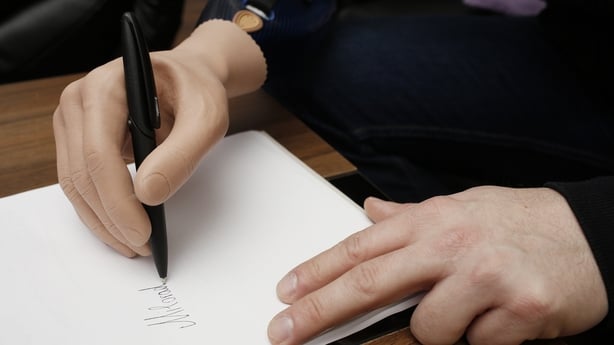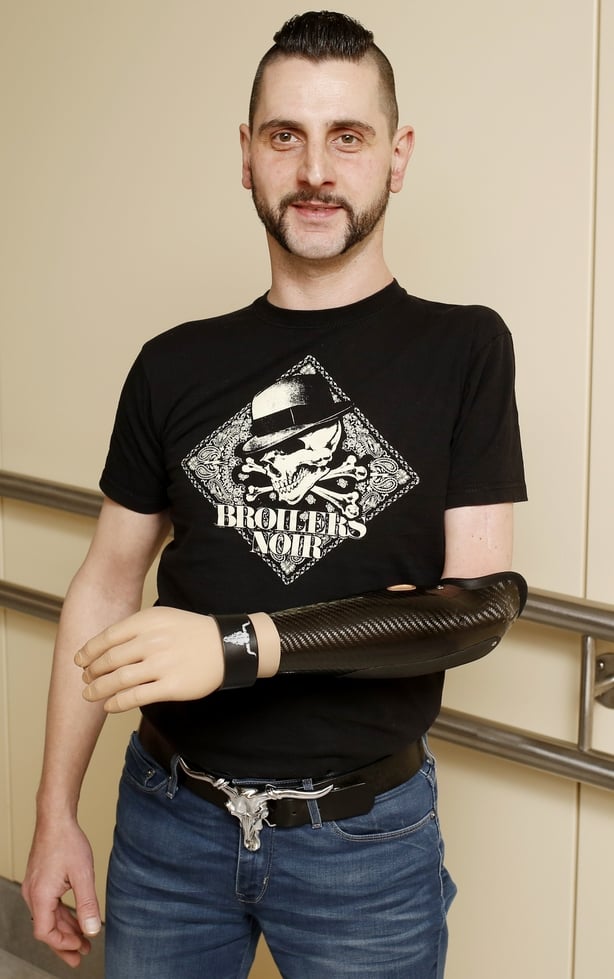Three men from Austria have become the first people in the world to undergo a pioneering new surgical technique which enables them to use a robotic prosthetic hand controlled by their minds.
All three have had a high level of function restored to their damaged limbs, following comprehensive rehabilitation.
The three men who took part in the study had suffered serious injuries as a result of vehicle and climbing accidents.
The injuries severely damaged the network of nerves originating in the neck which branch off to form most of the other nerves that control movement and sensation in the shoulder, arm, forearm, and hand.
Working with scientists and engineers in Austria and Germany, the men had a nine-month period of cognitive training to activate certain muscles and to learn to use electrical signals to control a virtual hand.
They then had their damaged hands amputated and replaced with an advanced robotic prosthesis, controlled by sensors that respond to electrical impulses in other muscles.
After a period of rehabilitation, all three were able to carry out various everyday tasks, like cutting food with a knife, pouring water from a jug and using a key.

Writing in the academic journal The Lancet, the researchers say there are no technical or surgical limitations that would prevent this procedure from being done in centres with similar expertise and resources around the world.


